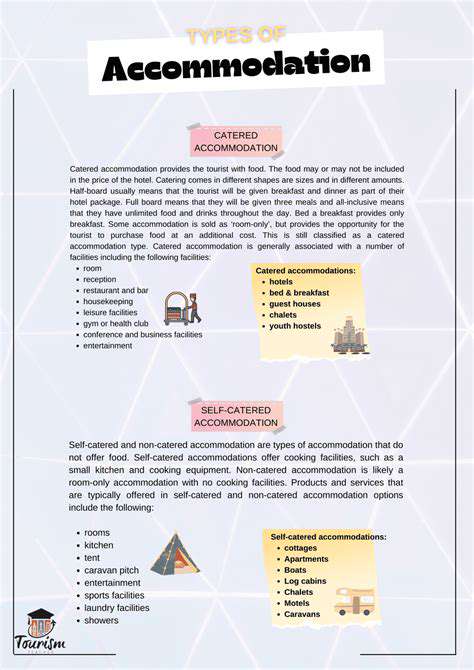Guide to Retirement Travel on a Budget
Strategic Transportation Choices
Planning Your Retirement Travel Budget
Retirement travel offers a fantastic opportunity to explore the world or simply relax in a familiar, comforting place. However, creating a realistic budget is crucial for a smooth and enjoyable journey. You need to consider not only the cost of flights, accommodation, and activities, but also factors like visa requirements, potential medical expenses, and the fluctuating costs of local transportation. Thorough planning can save you money and ensure you have the funds for unexpected expenses that may arise. Careful research and early planning are key ingredients for successful budget management.
Don't underestimate the cost of food. Local cuisine can be an exciting part of exploring a new place, but eating out every meal can quickly drain your budget. Consider preparing some meals yourself, especially if you have access to a kitchen. This not only saves money but also allows you to sample local ingredients and experience a deeper connection with the culture. Exploring affordable dining options like local markets and street food stalls can offer a taste of the local culinary scene without breaking the bank.
Choosing Affordable Transportation Options
Strategic transportation choices are vital for budget-conscious retirees. Consider the trade-offs between speed, convenience, and cost when selecting your mode of transport. While flying might seem appealing for long distances, it often comes with a hefty price tag. Exploring alternative options like trains or buses can provide a more cost-effective way to travel, especially for shorter distances. Think about whether you're willing to sacrifice some time for a greater savings on transportation costs.
Regional buses and trains can be a fantastic way to explore multiple destinations without the expense of individual flights. Researching these options in advance, and booking in advance, can often yield considerable savings. Taking advantage of discounts and deals can also significantly reduce your travel costs, so be sure to check for student, senior, or group discounts. This is a great way to get the most out of your retirement budget.
Optimizing Your Accommodation Choices
Accommodation costs can significantly impact your retirement travel budget. Instead of opting for luxury hotels, consider alternative accommodations like guesthouses, hostels, or vacation rentals. These options often provide a more authentic experience and can be considerably more affordable. Carefully comparing prices and reading reviews from other travellers can help you make informed decisions that align with your budget.
Consider staying in less touristy areas. Often, these areas offer lower prices for accommodation while still providing access to local attractions. Alternatively, consider a mix of accommodation types, such as staying in a hostel for a few nights and a guesthouse for a few nights, to experience different aspects of the local culture while managing expenses effectively. This allows for flexibility in your travel plan and prevents overspending.
Leveraging Travel Deals and Discounts
Taking advantage of travel deals and discounts is an essential strategy for any budget-conscious traveler. Websites specializing in travel deals can be invaluable resources for finding discounted flights, accommodation, and activities. Utilizing loyalty programs and rewards schemes associated with airlines, hotels, and travel agencies can help you accumulate points and redeem them for future travel expenses.
Prioritizing Experiences over Material Possessions
In retirement, the focus should shift from material possessions to experiences. Instead of splurging on expensive souvenirs, allocate your budget towards immersive cultural experiences. Visiting local markets, attending cultural performances, or taking cooking classes can offer a deeper understanding of the local culture and provide lasting memories without breaking the bank. Prioritize activities that provide value and enrich your travel experience rather than simply buying things. This approach will allow you to make the most of your retirement travel budget and create lasting memories.











